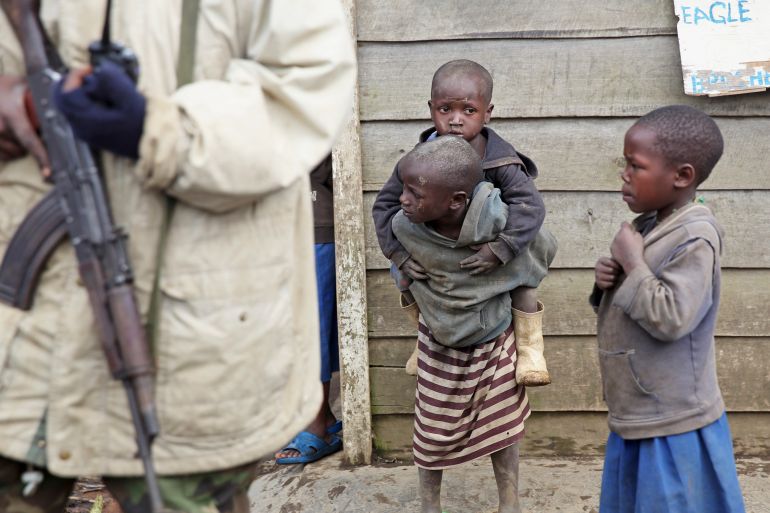M23 accept conditional ceasefire, want talks with DRC government
The armed group was warned that if they did not cease fire after the deadline, force would be used to push them out.

There has been a pause in fighting in the eastern Democratic Republic of the Congo, after confrontations on Friday between Congolese troops and M23 rebels, as the armed group conditionally agreed to a ceasefire.
However, M23, which is waging its most serious offensive in eastern DRC since 2012, has rejected calls by East African leaders to disarm and withdraw from land they have taken. They also want to talk directly with the government in Kinshasa.
Keep reading
list of 4 itemsRussia-Ukraine war: List of key events, day 792
US secretly sent long-range ATACMS weapons to Ukraine
Russia-Ukraine war: List of key events, day 791
Leaders of the DRC, Rwanda, Burundi, and Angola met in Luanda on Wednesday to find a solution to the continuing conflict. They agreed to a ceasefire, which went into effect at 16:00 GMT on Friday. But no representative from M23 was present at the talks.
In a statement by M23 leader Bertrand Bisimwa, issued on Friday, he expressed gratitude to regional leaders for helping to secure a peaceful solution to the conflict.
“The M23 respect the ceasefire as recommended by the heads of state,” he said, but added that they “request the DRC government to respect the said ceasefire, otherwise, the M23 reserves itself the full right to defend itself.”
Wednesday’s deal warned that if the rebels refused to stop fighting, the East African regional force deployed in Goma “will use force” to push them out.
Bisimwa’s statement reiterated a call for “direct dialogue” with the DRC government. But Kinshasa has so far ruled out negotiating with the M23, which it classifies as a “terrorist group”.
The statement said M23 had already declared a unilateral ceasefire in April and that it was the DRC’s army initiating the attacks. However, fighting has continued since then, and the armed group has captured several towns in the east.
Thousands of people have also been displaced as DRC’s army has struggled to stop the M23’s advance.
When it formed in 2012, M23 was the latest in a series of ethnic Tutsi-led rebellions to rise up against Congolese forces. It was pushed out of DRC in 2013 after seizing large swaths of territory, but has had a major resurgence this year.
The DRC and United Nations experts have said the group is backed by Rwanda, which Rwanda has denied.